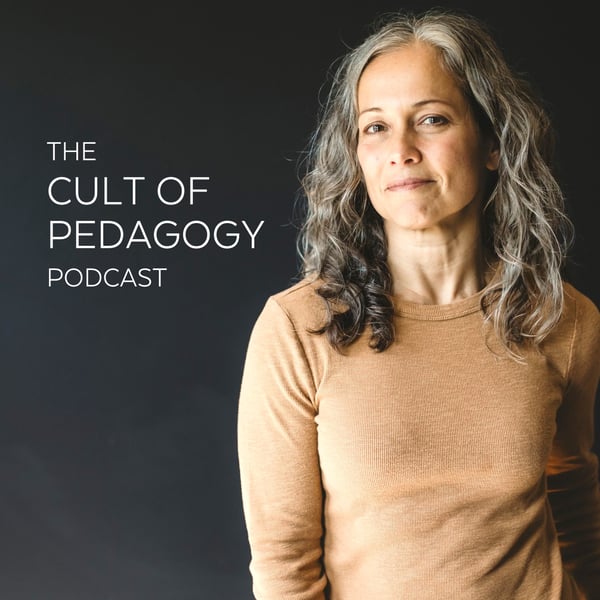239: Avoiding the Pitfalls of Multitasking in School
The Cult of Pedagogy Podcast
Jennifer Gonzalez
4.8 • 2.4K Ratings
🗓️ 25 November 2024
⏱️ 29 minutes
🧾️ Download transcript
Summary
Multitasking isn't great for our brains, it compromises our mental health, and ultimately it doesn't even work, but that doesn't stop many of us from trying to do it all the time. What we may not realize is that it also sneaks into our classrooms and interferes with learning, and it's happening in ways you may not even notice. In today's episode, I'm talking with cognitive scientist Megan Sumeracki about the pitfalls multitasking creates in schools, and what we can do to avoid them.
--------------------------------------------
Thanks to The Gilder Lehrman Institute and Alpaca for sponsoring this episode.
For a full transcript of this episode, visit cultofpedagogy.com/pod and choose episode 239.
Transcript
Click on a timestamp to play from that location
| 0:00.0 | This is Jennifer Gonzalez, welcoming you to episode 239 of the Cult of Pedagogy podcast. |
| 0:05.0 | In this episode, we're going to talk about how to avoid the pitfalls of multitasking in school. |
| 0:27.4 | While many people have probably gotten the memo that multitasking isn't great for our brains, |
| 0:32.6 | it strains our mental health, and ultimately doesn't even work, that's not stopping a whole lot of us from trying to do it all the time. Sometimes this isn't a huge deal. It might make us irritable or reduce our |
| 0:39.5 | productivity. But other times it could threaten our relationships, alienating friends and family |
| 0:45.3 | who struggle to get our full attention, or even our safety, like when we try to multitask while |
| 0:50.9 | driving. Most of this has been pretty widely publicized by now, but multitasking also |
| 0:57.0 | sneaks into our classrooms and interferes with learning, and it's happening in ways you might |
| 1:02.0 | not even recognize. In today's episode, I'm talking about this problem with cognitive scientist |
| 1:07.5 | Megan Samaraki. Megan is the co-author of the book Ace That Test, a student's |
| 1:13.1 | guide to learning better, and a team member on the fantastic site called The Learning Scientists, |
| 1:19.0 | where a group of scientists share all kinds of useful information about how we learn. She was also my |
| 1:24.6 | guest on episode 232 about metacognition. Today, we're going to look at some of |
| 1:29.8 | the sneaky ways multitasking creates pitfalls in schools and what we can do to avoid them. |
| 1:35.8 | Before we get started, I'd like to thank Alpaca for sponsoring this episode. |
| 1:40.8 | Interested in knowing how your teachers are really doing right now i've always believed that asking |
| 1:46.4 | teachers and students for feedback is one of the simplest and most powerful ways to improve a |
| 1:50.9 | school's culture earlier this year at south by southwest edu i discovered something new that |
| 1:56.8 | really caught my attention it's called semantic pulseying, and it's from a company called |
| 2:02.4 | Alpaca. You might have heard them on episode 2.30 of the podcast back in June. I tried it myself, |
| 2:09.1 | and it was so different from the usual surveys we're used to. Instead of picking from a one to five |
| 2:14.1 | scale, I just tapped words that described how I was feeling, words like |
... |
Transcript will be available on the free plan in -126 days. Upgrade to see the full transcript now.
Disclaimer: The podcast and artwork embedded on this page are from Jennifer Gonzalez, and are the property of its owner and not affiliated with or endorsed by Tapesearch.
Generated transcripts are the property of Jennifer Gonzalez and are distributed freely under the Fair Use doctrine. Transcripts generated by Tapesearch are not guaranteed to be accurate.
Copyright © Tapesearch 2025.

